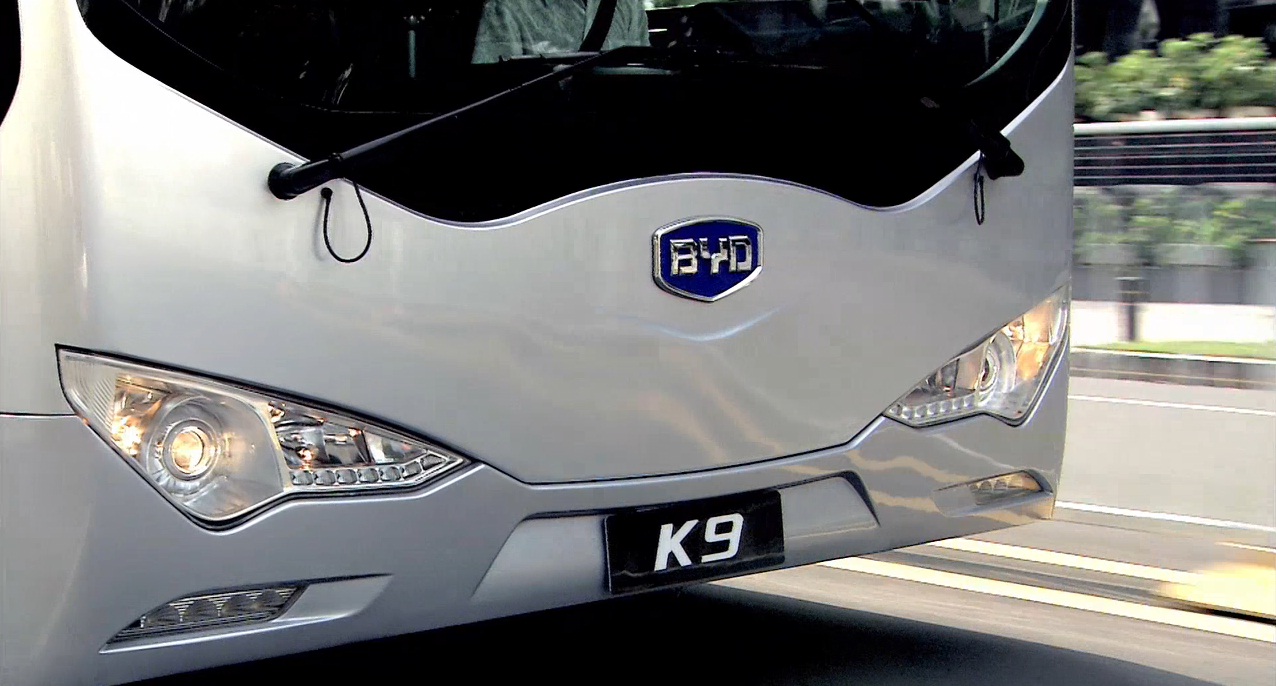
After previous delays with production and federal testing, the U.S. subsidiary of Chinese company BYD, the bus manufacturer set to provide Long Beach Transit (LBT) with its electric bus fleet, could be facing new problems. Not only is the company that BYD hired to make its battery’s chargers embroiled in a lawsuit for allegedly being unable to manufacture the technology in time, but the Federal Transit Administration (FTA) is considering revoking BYD’s funding for electric-bus procurement.
Wireless Advanced Vehicle Electrification (WAVE), the company which is providing BYD with its inductive power transfer (IPT) battery chargers, is now being sued by energy investor Sarn Energy in a complaint filed January 8 of this year for being unable to manufacture the technology in a timely manner.
According to the complaint, Sarn has a cooperation agreement that allowed them to commercialize the IPT system in Eastern Europe and had they invested $2M to build up the market there based on WAVE’s claims that it “was capable of producting and had produced” an operable 25kW IPT battery charger.
IPT technology is a hands-free, wire-free transfer of energy where charging pads emit electrical energy through the air in order to charge the battery. It is this technology that BYD informed LBT they would be using on their electric buses; however, Sarn is claiming WAVE’s technology, contrary to what they were previously told, has yet to step out of the prototype phase and they want their $2M market investment back. WAVE denies all of the allegations in the claim.
BYD also made the bid to LBT offering WAVE as its battery charger manufacturer before WAVE had even hired a CEO to oversee product launch. Though LBT granted BYD the electric bus contract in March of 2013, WAVE’s website announced their new CEO, Michael Masquelier, who is to oversee the product launch, two months later in May of 2013.
BYD was approached for comment about the lawsuit but declined, stating that the company does not comment on matters being discussed between lawyers.
The lawsuit follows a letter the FTA sent to BYD on November 1 which insinuates that BYD might be ineligible for the federal funds it received for the electric bus bid.
{loadposition latestbusiness}
“After reviewing LBT’s recent contracting activity for [the electric bus bid],” the letter states, “FTA noted that at the time BYD submitted and LBT accepted BYD’s proposal to provide electric buses, BYD had not included a signed Disadvantaged Business Enterprise (DBE) certificate of compliance as is required.”
DBE regulations help small businesses owned by “socially and economically disadvantaged individuals” compete in the marketplace.
In a second letter, sent December 16, following LBT’s response to the initial accusation, the FTA remained adamant that BYD was and is ineligible to receive the funds.
“After having carefully considered LBT’s response, one simple fact remains undisputed,” said Linda Ford, Director of the Office of Civil Rights of the FTA, “BYD was ineligible to bid on the LBT procurement.”
LBT has not released its formal response to the FTA and has issued only a single statement regarding the matter:
“As stated in the letter, the FTA informed LBT that BYD is out of compliance with certain Disadvantaged Business Enterprise (DBE) requirements,” said LBT Spokesperson Kevin Lee. “As required, LBT has given BYD a period in which they may attempt to cure. During that period, LBT will have no further comment regarding this issue.”
BYD said they are working close with the FTA to mend matters.
“BYD believes it is in compliance with all DBE requirements and is working closely with senior FTA officials,” said Micheal Austin, Vice President of BYD America. “BYD believes strongly in not only meeting our DBE goals of utilizing small business owned and operated by disadvantaged people, but in exceeding those goals. We are an American company creating American jobs with superior 24-hour battery technology, and we are proud of our commitment to the entire DBE program.”
Note: this article’s original title mistated WAVE as a “Battery Company” when it actually manufactures battery chargers.
Eds note: A previous version of this story incorrectly said that SARN had invested $2M in WAVE, which is incorrect. Sarn entered a cooperative agreement with WAVE in 2011 and has claimed to have invested $2M into the Eastern European market based on statements of capabilities made by WAVE.
Read more:
- California Drops Wage Violation Allegations Against BYD
- BYD Defends Allegations of Labor Violations, Federal Testing Shortcomings, Delivery Delays
- Labor & Social Justice Organizations Protest BYD, Call for Long Beach to Abandon Contract
- Long Beach Transit Faces New Challenges with Electric Bus Procurement
- Long Beach Transit Board Votes to Buy Electric Buses From Chinese Company
Sarn Energy, LLC v. Wireless Advanced Vehicle Electrification, INC. (State of Delaware)

